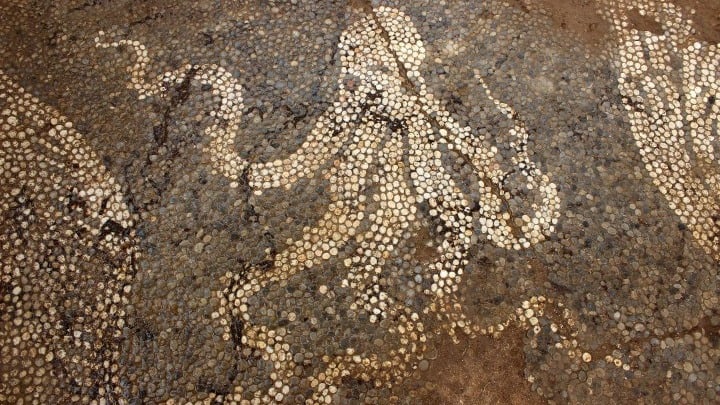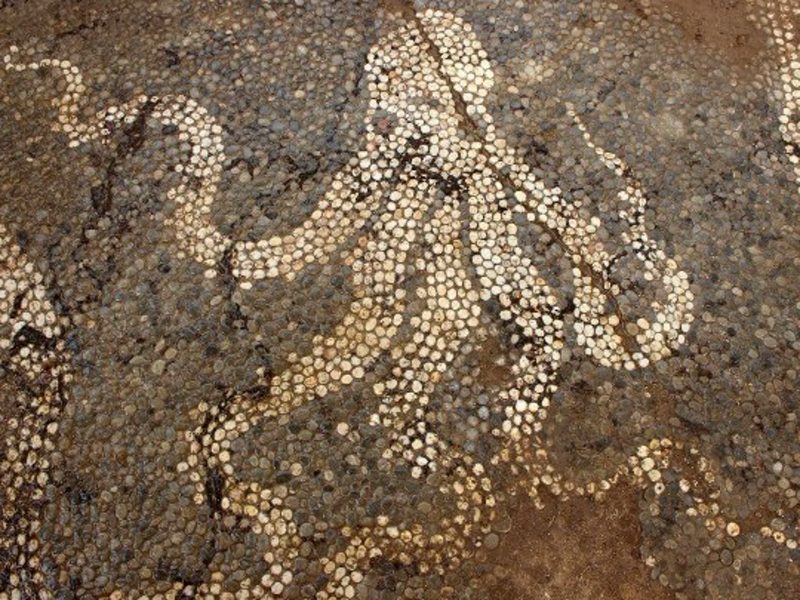
A 4th century BC pebble mosaic was discovered in a bathhouse during an excavation at the Small Theatre of Ancient Amvrakia in Arta, Epirus.
The round mosaic consists of small white, off-white and dark river pebbles showing scenes related to water. Besides a border decoration setting it off from other spaces, it includes cupids playing with animals, swans, fish, waterfowl and an octopus.
The pebble mosaic dates earlier than the theater itself and is related to a similar mosaic discovered in the '70s, partly covered by the eastern part of the theater and later removed to the Archaeological Museum of Arta.
In a press release, the Arta ephorate said the dating was based on architectural evidence and on comparisons with pebble mosaics found at the Ancient Corinth baths, dated to the mid-4th century.
The supervision of the excavations is led by archaeologist Nektarios-Petros Gioutsos and three conservators have already taken measures to preserve and stabilise the new find.
Arta, in western Greece, has been inhabited continuously from antiquity to the present, and the layered remains of older settlements are still visible in various parts of the present city.

